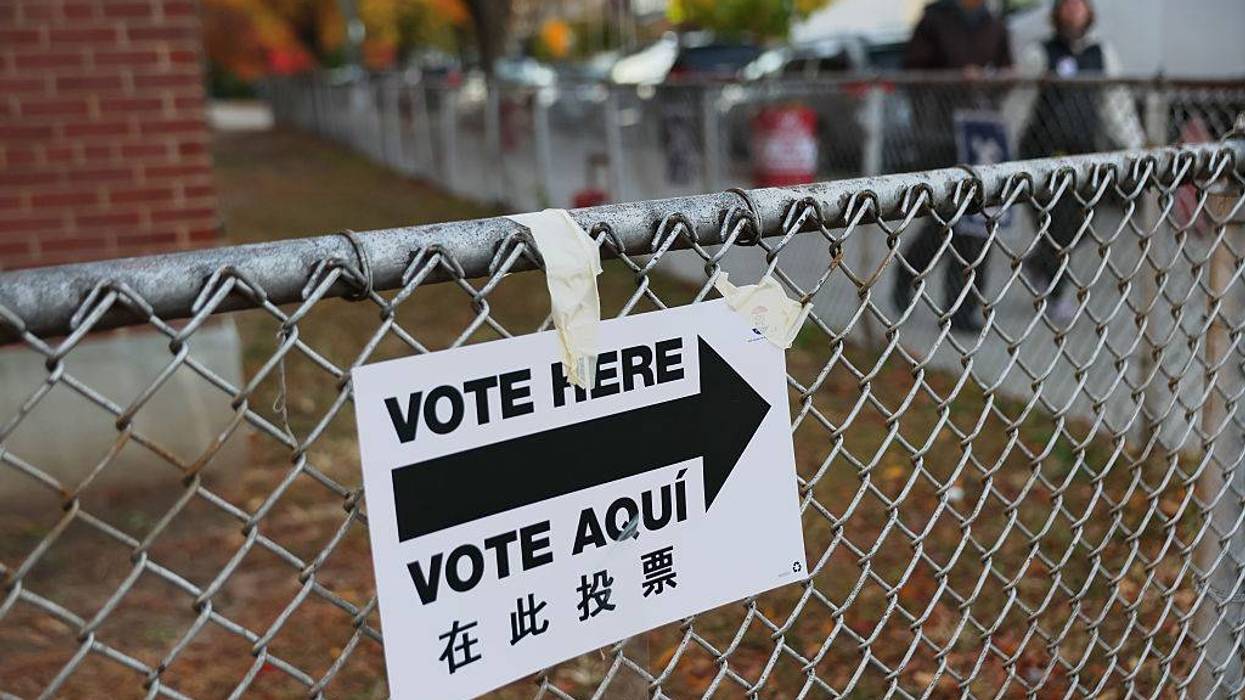As NBC News reported on Sunday evening:
Cars set on fire by cartel members blocked roads in nearly a dozen Mexican states and left smoke billowing into the air. Jalisco’s capital, Guadalajara, was turned into a ghost town Sunday night as civilians hunkered down. Later, authorities announced they had cleared most of the more than 250 cartel roadblocks across 20 states.
Several Mexican states canceled school Monday, and local and foreign governments warned citizens to stay inside as violence erupted.
The sudden outbreak of violence has created a state of terror for many ordinary people in Mexico. One Guadalajara resident, Maria Medina, told Agence France-Presse that men with guns showed up at the gas station where she works, ordered everyone to leave, and set the building on fire.
"I thought they were going to kidnap us. I ran to a taco stand to take cover with the people there," Medina said.
The US State Department has urged Americans in parts of Mexico to “seek shelter and remain in residences or hotels.” Many flights out of the country have been canceled, leaving tourists stranded.
Visitors at the popular Jalisco beach resort of Puerto Vallarta have been forced into hiding as gunmen have taken over the streets.
One father in Seattle told the local news station Fox 13 that he received frightened texts from his daughter, who was visiting the area, around 3:30 in the afternoon, describing the chaos.
“The text she sent, talking about, ‘The whole city is on fire, and we are hiding at home,'" he said. "'The cartel are outside right now watching the citizens and making sure the military does not come in. The police are not here to help. We are hiding.’“
According to one open-source effort to map the fallout, at least 19 of Mexico's 32 states had seen outbreaks of violence as of Sunday evening.
So far, no civilian deaths have been confirmed. However, according to the Associated Press, at least 25 members of the National Guard have been killed since El Mencho's death.
United States forces were not reportedly involved in the operation that led to El Mencho's death. However, US fingerprints are all over the attack.
In a statement on Sunday night, White House Press Secretary Karoline Leavitt said the US "provided intelligence support to the Mexican government in order to assist with an operation" in which El Mencho was killed.
She added that "President [Donald] Trump has been very clear—the United States will ensure narcoterrorists sending deadly drugs to our homeland are forced to face the wrath of justice they have long deserved."
The attack comes after months of threats from Trump to use US military force to take out cartel leaders, against the wishes of Mexican President Claudia Sheinbaum.
At a press conference on Monday, Sheinbaum said that despite the previous day's chaos, "the country is at peace."
"We awoke today with no blockades,” she said. “All activity has practically been reestablished.”
Several news outlets have described the killing of El Mencho as a direct response to US sabre-rattling, which has ramped up following last month's operation to abduct Venezuelan President Nicolás Maduro.
El Mencho, who founded CJNG around 2010, has been "public enemy number one" for the US Drug Enforcement Agency (DEA) for nearly a decade, for his role in turning the cartel into a hyper-violent organization that coordinated global drug operations.
While CJNG has been considered one of the largest suppliers of Mexican fentanyl, heroin, and methamphetamine to the US—even greater than the more famous Sinaloa Cartel—experts say it’s unlikely that the killing of its 59-year-old kingpin will do much to solve the problem.
"What we've seen in the past is that the removal of the kingpin doesn't necessarily affect significant network disruption," Anthea McCarthy-Jones, an expert in Latin America at the University of New South Wales, told the Australian Broadcasting Corporation. "The removal of the leader doesn't have any impact on the day-to-day relations and the relationships that facilitate this kind of global drug trafficking operation."
US Deputy Secretary of State Christopher Landau boasted that taking out “one of the bloodiest and most ruthless drug kingpins” was “a great development for Mexico, the US, Latin America, and the world."
But David Mora, the senior Mexico analyst at the International Crisis Group (ICG), said it will likely trigger more instability.
"In the absence of a direct succession, a power vacuum is created that opens the door to violent realignments within the organization," Mora told AFP.
Chris Dalby, an organized crime expert who has written a book about the Jalisco cartel, told The Guardian that this power struggle could culminate in a full-scale civil war if no successor emerges to fill El Mencho's shoes.
“If no one can, if the CJNG finally splinters, you have four or five different lieutenants with the manpower, the weaponry, and the criminal empires to build their own fiefdoms—and that could plunge Mexico into almost record levels of violence," said Dalby.
The explosion of violence and instability following the death of just one cartel leader has mirrored what critics warned may follow if the US attempted to bring about the “total elimination” of drug cartels using airstrikes and special operations forces.
"At best, US military strikes in Mexico will weaken the cartels over the short term," wrote fellows Daniel DePetris and Christopher McCallion in a July paper for the think tank Defense Priorities. "At worst, they will cause the cartels to splinter even further, spiking the level of violence, straining the Mexican government’s military resources, and causing significant blowback against Americans in both Mexico and the United States."





